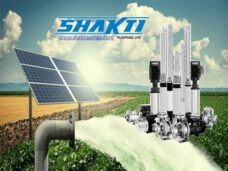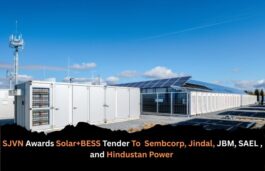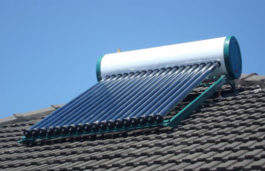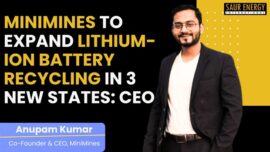Highlights :
- As activity levels pick up pace around Green Hydrogen, the government has no dearth of solutions on offer for India.
- The challenge will be to ensure that growth in this new area happens at scale, and is competitive with global benchmarks, for long term sustainability.
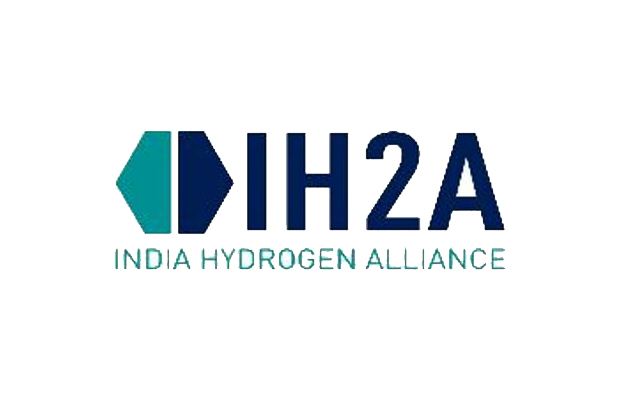
Industry body India Hydrogen Alliance (IH2A), a coalition of firms focused on India’s green hydrogen pathways with Chart industries, Reliance Industries and JSW Steel as key members, has a plan for the government.
IH2A has proposed a 25/25 National Green Hydrogen Hub Development Plan for creation of 25 National Green Hydrogen Projects and Five National H2 Hubs by 2025. The plan seeks to develop first-generation green hydrogen projects, with public finance support of USD 360 million over next three years; create a National Hydrogen Development Corporation and public-private hydrogen taskforce. The 25/25 Green Hydrogen Hub Development Plan was submitted today by IH2A to NITI Aayog and Ministry of New and Renewable Energy, Government of India.
Focus On Hubs
IH2A’s 25/25 National Green Hydrogen Hub Development Plan focusses on create scalable green hydrogen projects and hubs that can grow to gigawatt-scale projects in three years. The plan recommendations are:
1) India should build at least 25 scalable green hydrogen projects, aggregating to 150 MW installed electrolyser capacity by 2025, designated first-generation ‘national green hydrogen projects’ – 12 industrial de-carbonisation projects in chemicals, refinery, steel industries; three heavy-duty transport projects, three H2-blending in CGD projects and seven distributed waste-to-H2 municipal projects.
2) Five National Green Hydrogen Hubs in Gujarat, Karnataka, Maharashtra, Kerala and Andhra Pradesh; clustering the 25 Green Hydrogen projects, where multi-sectoral demand for green hydrogen can be produced and used, without building expensive new infrastructure in next three years. This includes:
a) Ankleshwar-Vadodara in Gujarat as National Green Chemicals and Ammonia Fertilizer Hub with 40 MW electrolyser plant, producing 8000 tonnes Green H2 per annum for chemical and fertilizer units; to reduce 8 Mmt of CO2 in the hub within a decade.
b) Bellary-Nellore (Karnataka-Andhra Pradesh) as National Green Steel and Chemicals Corridor with 30 MW electrolyser plant, producing 5000 tonnes Green H2 per annum for steel and chemical plants in the corridor, to reduce 5 Mmt of CO2 within a decade.
c) Pune-Mumbai (Maharashtra) as National Green Steel and Transport Hub with 30 MW electrolyser capacity plant, producing 5000 tonnes Green H2 per annum, to reduce 5 Mmt of CO2 within a decade.
d) Kochi (Kerala) as National Green Refinery and Transport Hub with a 30 MW electrolyser capacity plant, producing 5000 tonnes Green H2 per annum, to reduce 5 Mmt of CO2 within a decade.
e) Vishakhapatnam (Andhra Pradesh) as National Green Refinery and Transport Hub with a 20 MW electrolyser plant, producing 4000 tonnes Green H2/ annum, to reduce 4 Mmt of CO2 within a decade.
Subsidy and Industry Support
3) Public finance support of USD 360 million over next three years from Government of India for capital expenditure on electrolysers, balance-of-plant (BoP) equipment; and a green hydrogen price support of USD 2 per kg of H2 in first-generation green hydrogen projects. Public funding is important for inducing early-stage green hydrogen demand and supporting first-generation projects that create public project development experience which can be applied to the next generation of scaled-up projects, after 2025.
4) Formation of Green Hydrogen Project Development Consortia by Industry Champions, in partnership with State Governments and preparation of State Green Hydrogen Policies to create the Green Hydrogen Hubs.
Speaking on the 25/25 National Green Hydrogen Hub Development Plan, Jill Evanko, Chief Executive and President, Chart Industries, and founding member, IH2A, said, “This is a blueprint of how the green hydrogen economy can be developed over the next three years in India. The estimated USD 360 mn public finance support in project development will help India quickly commercialize green hydrogen projects at scale in the region. Government support for hydrogen project development contributes to further
investment from both global green climate investors and the private sector.”
Speaking on key challenges in the short term, Sanjay Mashruwala, Reliance, and IH2A member, said, “The next few years will be critical for rapidly developing expertise and developing end to end green hydrogen ecosystem. While individual industrial groups can execute some aspects of green hydrogen projects at scale, developing a national hydrogen end-to-end ecosystem – from renewable power, electrolysis, storage, logistics, and consumption will require collaboration across the industry as well as in the form of stronger public-private partnerships. The 25/25 Green H2 Hub Development Plan lays out a roadmap for this to be achieved.”
Elaborating on identified national hubs in the 25/25 plan, Prabodha Acharya, Chief Sustainability Officer, JSW Group and IH2A member, said, “The 25/25 Plan shows a pathway for India to leverage green hydrogen for industrial decarbonisation in hard-to-abate sectors. Industrial majors must collaborate and co-build the green hydrogen economy through national hubs, as has been demonstrated in the plan. This goes beyond individual actions for green hydrogen commercialisation and longer-term net-zero action plans announced by companies. We will lead by example in the steel and cement sector, by helping build these national hubs.”
Speaking on preparation of the 25/25 Green Hydrogen Hub Development Plan, Amrit Singh Deo, Senior Managing Director, FTI Consulting, and IH2A Secretariat lead, said, “The 25/25 plan addresses immediate project development priorities by providing a pathway to first 150 MW that will help India learn, improve, collaborate and build scalable GW-scale green hydrogen projects in the 2025-30 period. It benefits government and industry decision makers so that they can commercialize green hydrogen in a focused, cost-effective manner. The proposed public spends are a fraction of what other economies are spending.”
Full details of proposed plan are on www.ih2a.com.





